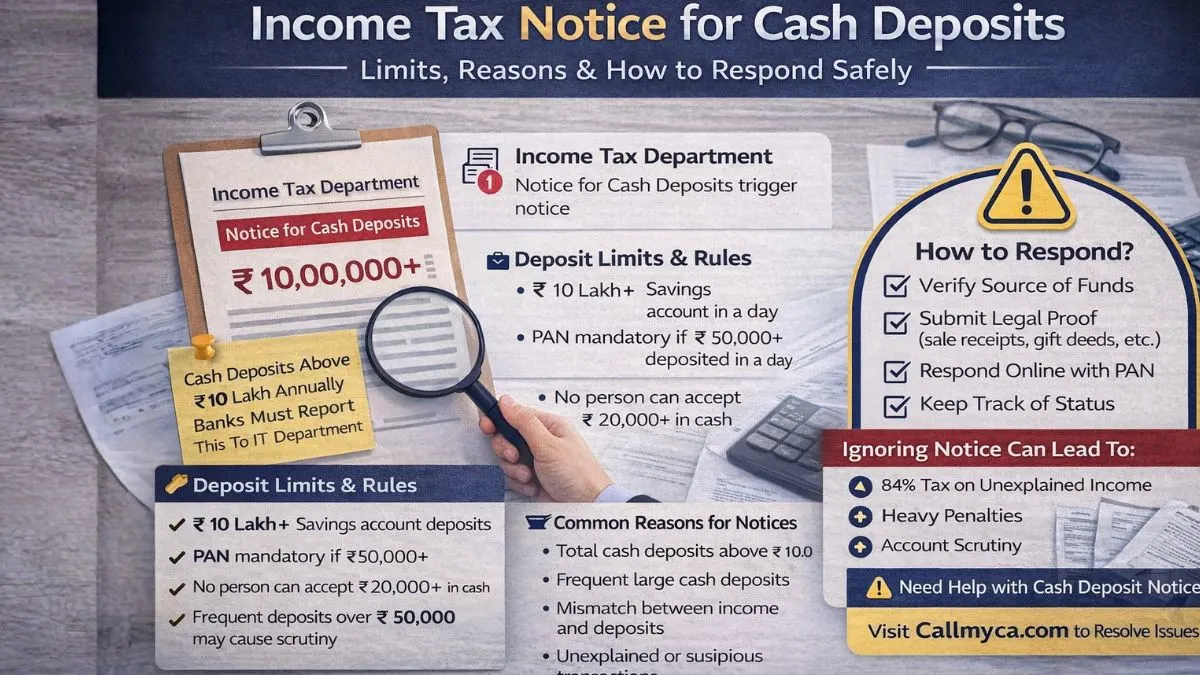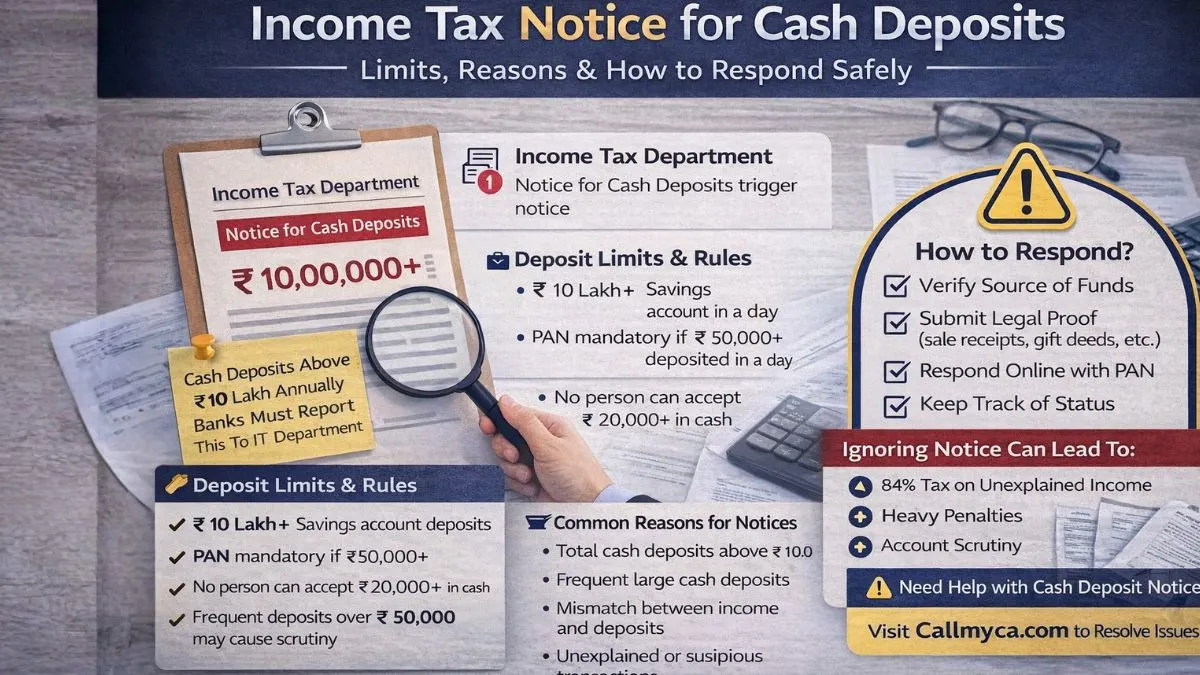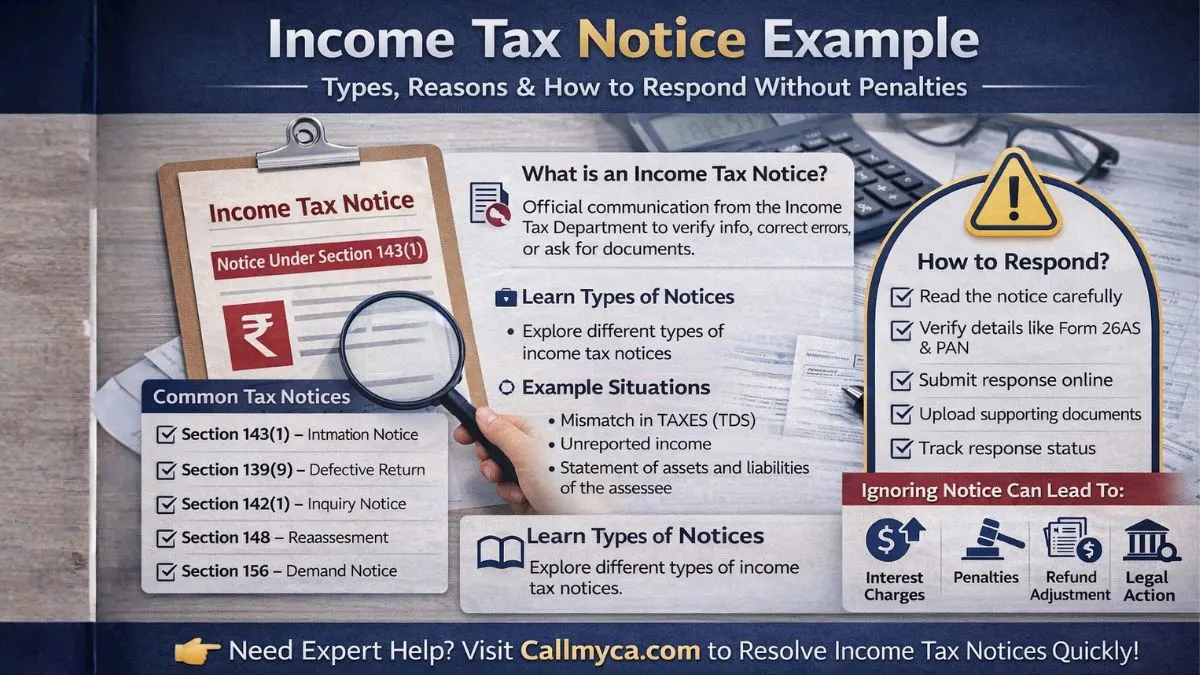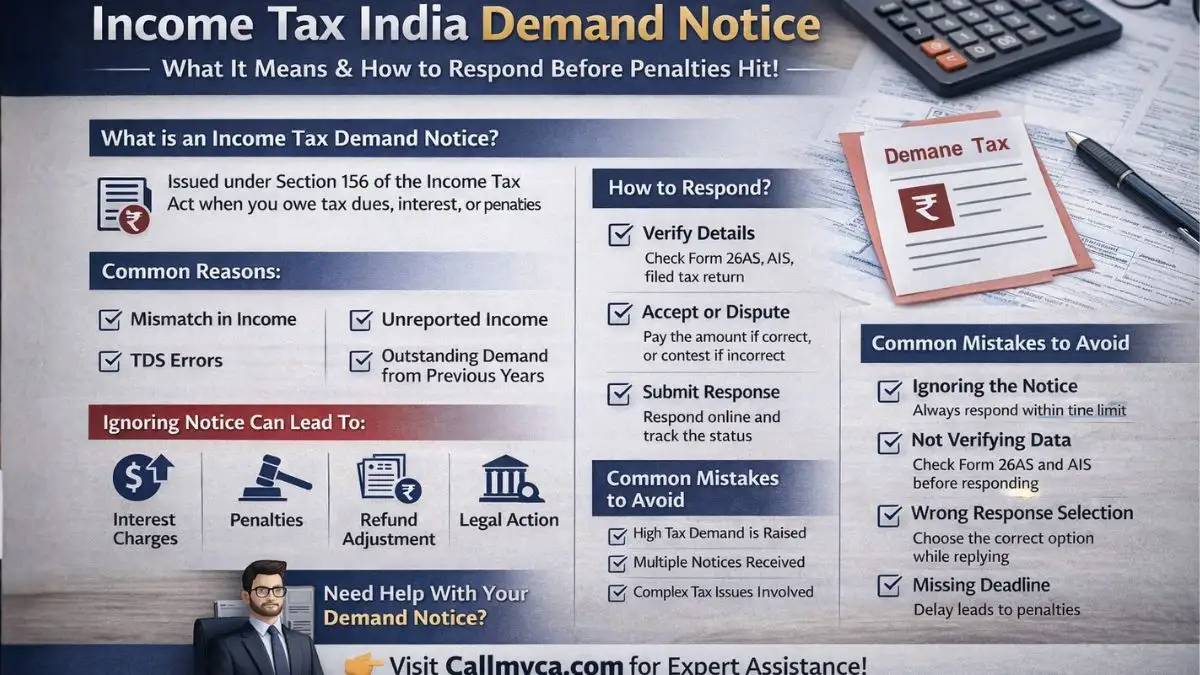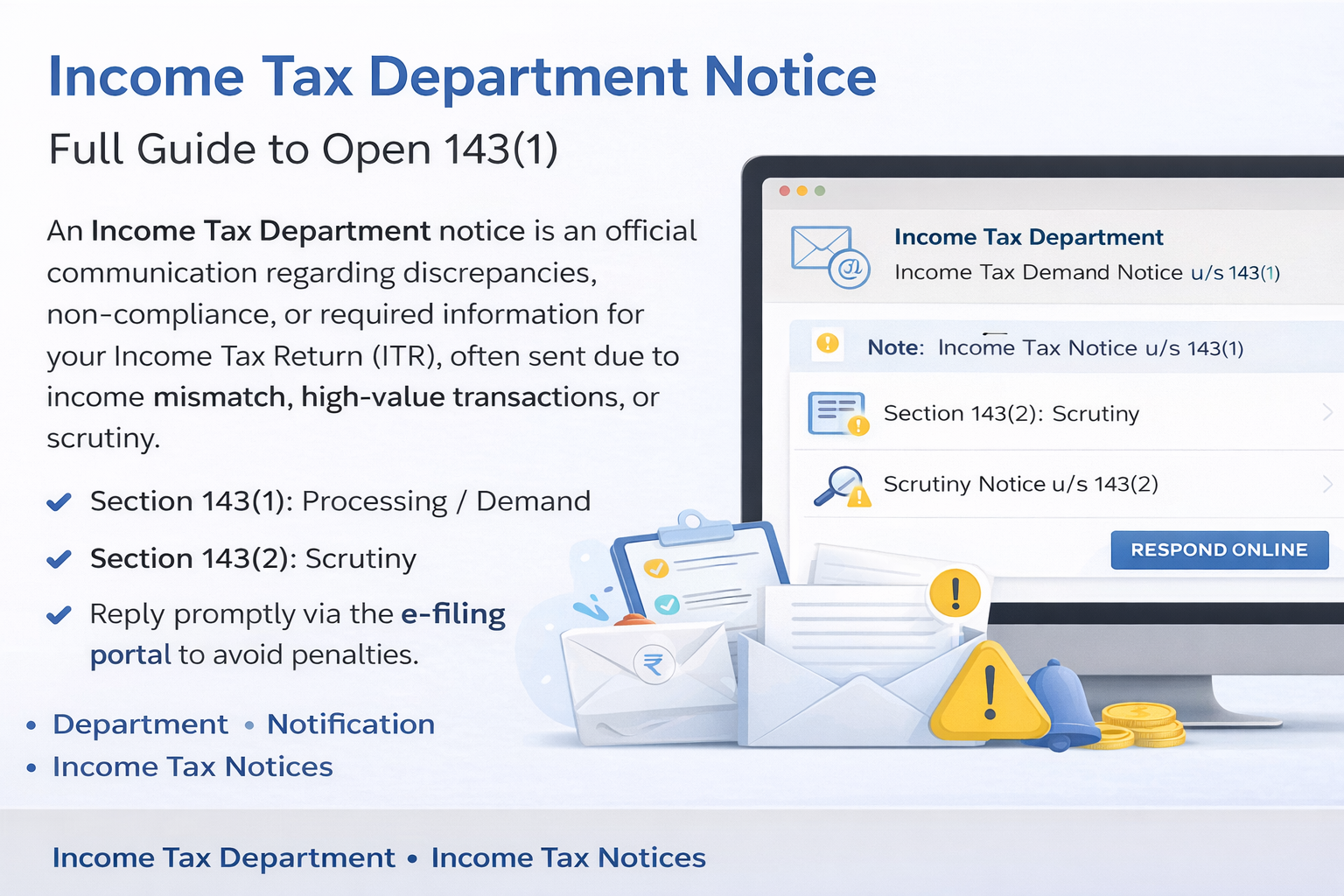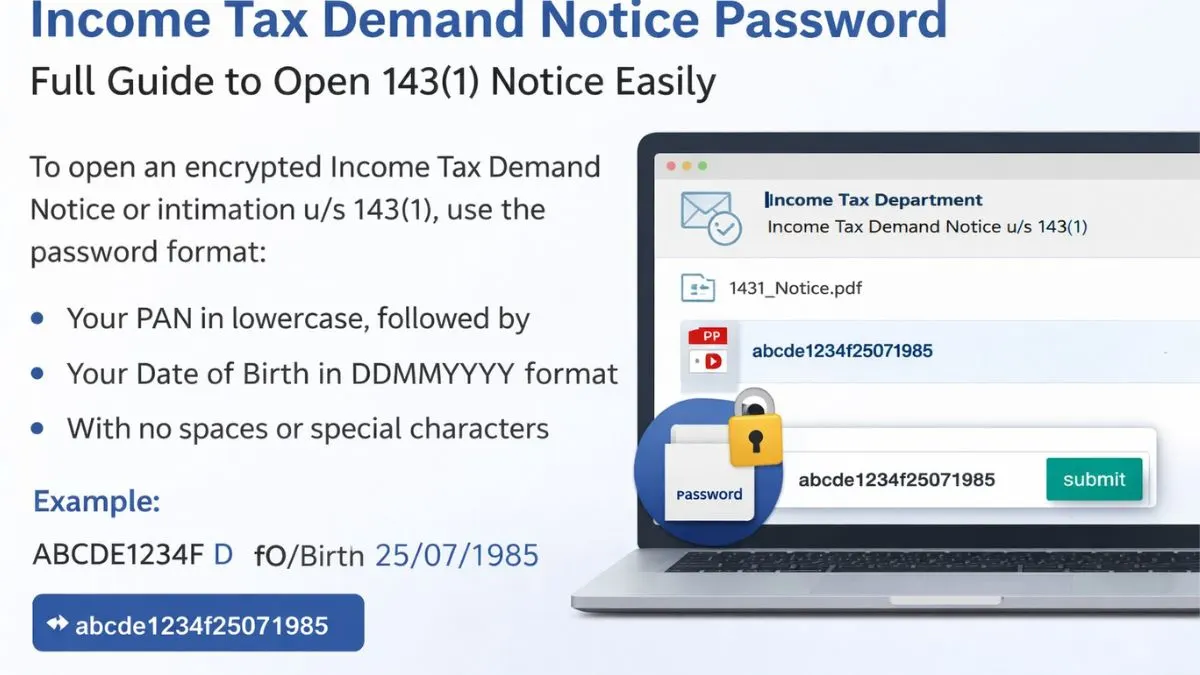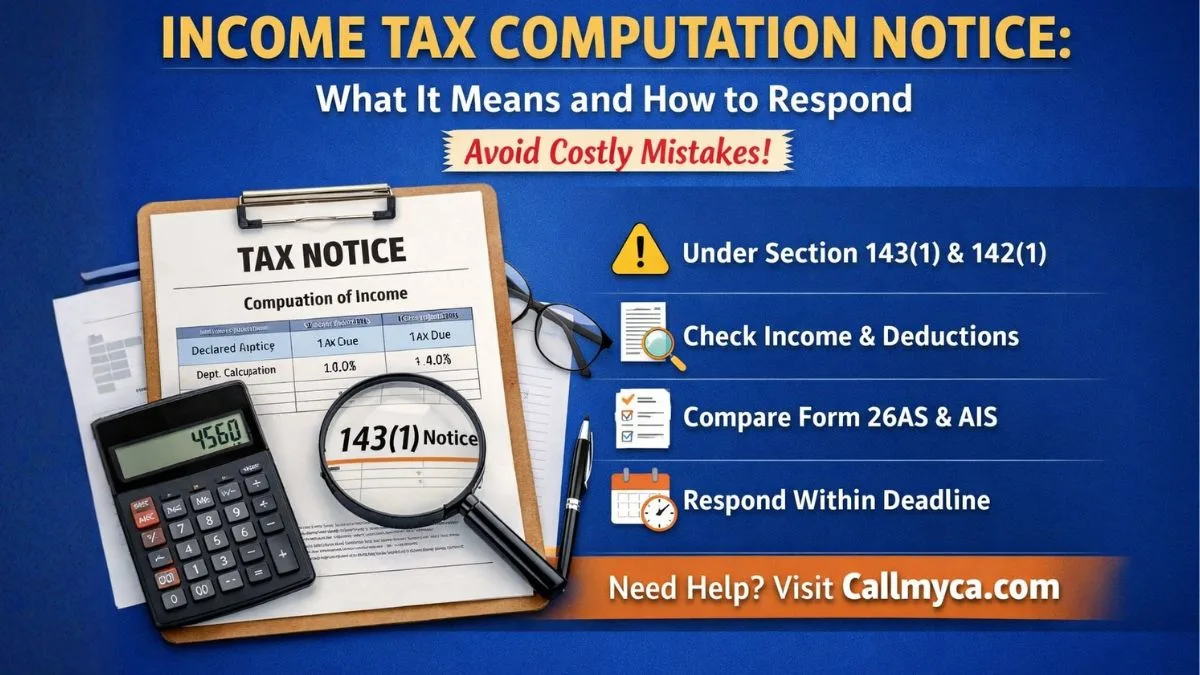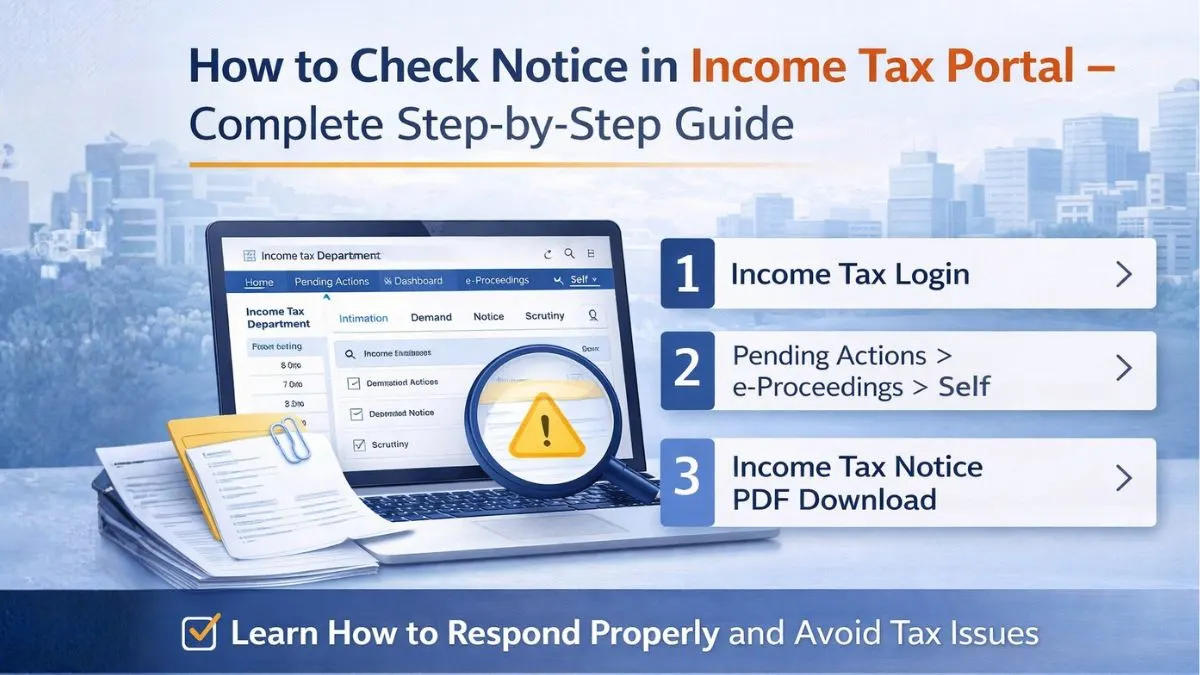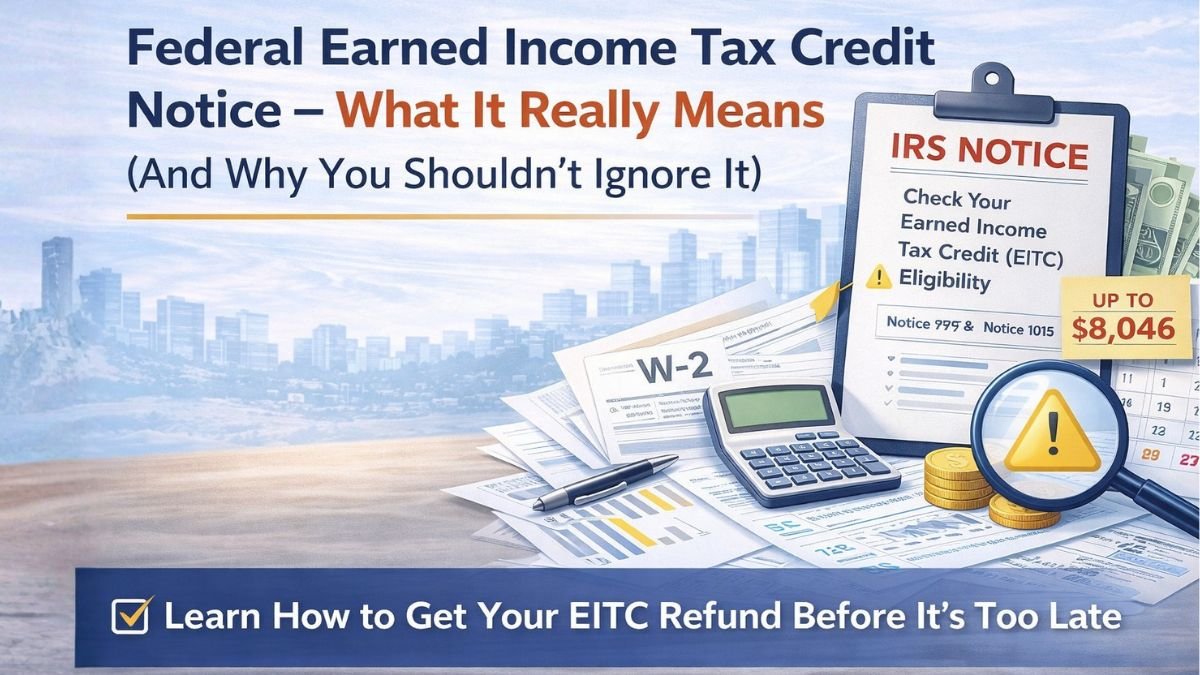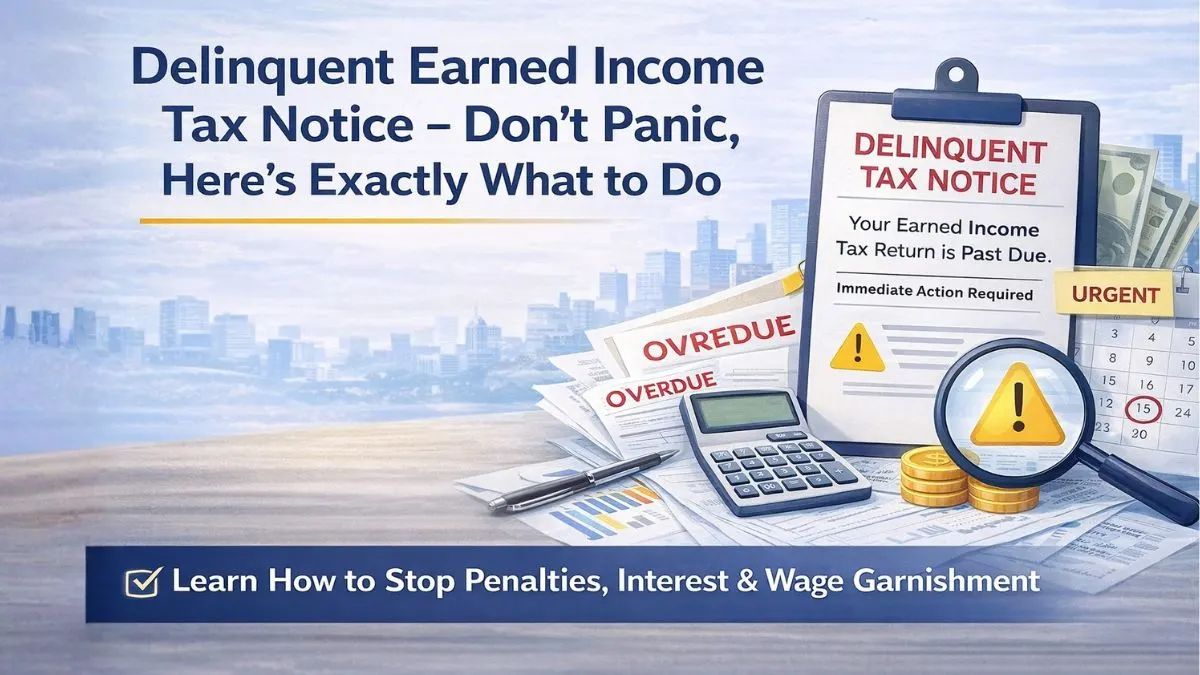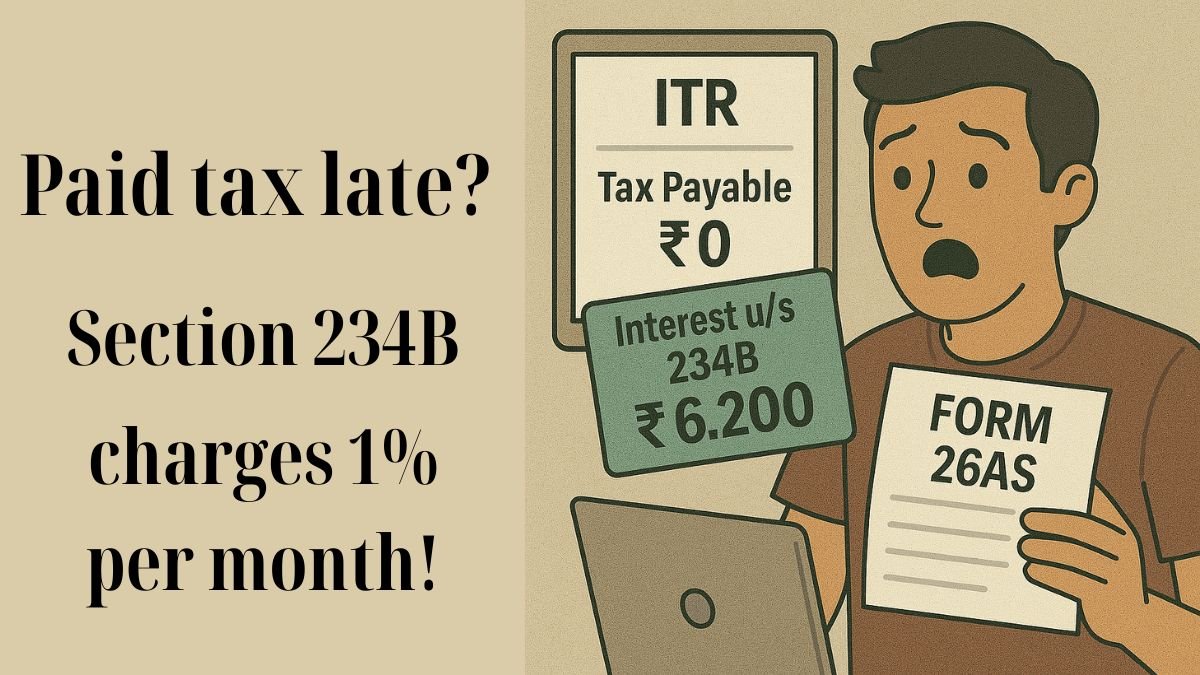
Paying income tax is a responsibility every taxpayer shares. But what if you delay paying your advance tax? That’s where Section 234B of the Income Tax Act comes into play. This section deals with the levy of interest on the taxpayer for failing to pay advance tax on time or at all.
Let’s simplify this for you.
What is Section 234B?
Section 234B specifies the interest for the delay in the payment of advance tax. It is a penal interest charged when a taxpayer either fails to pay advance tax or pays less than 90% of their total tax liability.
Advance tax is meant to be paid in four instalments during the financial year (for individuals other than those covered under presumptive taxation). Failure to do so results in additional financial burden in the form of interest under Section 234 B. "
Who is Liable to Pay Interest under Section 234B?
If you are a taxpayer whose total tax liability exceeds ₹10,000 in a financial year & you did not pay advance tax, or paid less than 90% of the assessed tax, then you fall under the purview of Section 234 B.
This applies to:
- Salaried individuals with additional income (like rent, capital gains, etc.)
- Freelancers or self-employed professionals
- Businesses with fluctuating income
- NRIs with Indian income "
Why Was Section 234B Introduced?
The government collects taxes throughout the year through TDS, TCS, & advance tax. If taxpayers delay these payments, the government faces a cash flow crunch. To discourage such behaviour, Section 234B deals with the levy of interest on the taxpayer for these delays.
It ensures that taxpayers are timely in their payments & penalises delays in the payment of the advance taxes.
How Is Interest Calculated Under Section 234B?
Let’s break it down simply.
- Interest Rate: 1% per month or part of a month
- Period: From 1st April of the assessment year till the date of actual payment
- Amount: Interest is calculated on the unpaid advance tax amount (i.e., assessed tax – advance tax paid)
Let’s understand with an example:
Example:
Mr. Arjun has a total tax liability of ₹1,50,000 for FY 2024-25. He has paid only ₹1,00,000 as advance tax during the year. This means he paid less than 90% of the total tax. Hence, he is liable to pay interest under Section 234B on ₹50,000 (remaining amount).
If he pays this remaining amount on 31st July 2025, the interest will be charged from 1st April 2025 to 31st July 2025 = 4 months
Interest = 1% per month × 4 months × ₹50,000 = ₹2,000
What is “Assessed Tax”?
This is the tax calculated based on your total income after deducting:
- TDS/TCS
- Relief under sections like 90, 90A, or 91
- Tax credits under Section 115JAA or 115JD
If the advance tax paid is less than 90% of this amount, interest under Section 234B is applicable.
Exceptions to Section 234B
- If the entire tax has already been deducted at source (TDS), & no advance tax was required.
- Senior citizens (aged 60 ) not having business income are exempted from paying advance tax.
- If the shortfall in advance tax is due to underestimation of capital gains, & the taxpayer pays it on the next due date or by 31st March, interest may not be levied strictly.
Common Mistakes to Avoid
- Assuming TDS covers all your tax liability
- Not accounting for rental income, interest from savings, or capital gains
- Paying full tax at the end of the year instead of in instalments
- Believing that advance tax applies only to businesses (it applies to individuals, too)
Delays in the payment of the advance taxes not only lead to interest under Section 234B but may also attract additional interest under Section 234C if you default on instalment-wise payments.
How to Avoid Interest Under Section 234B?
- Calculate your estimated income and tax liability early in the year
- Pay advance tax in instalments: June (15%), September (45%), December (75%), and March (100%)
- Don’t rely only on TDS—account for all income sources
- If you're self-employed or earning via freelancing, set aside tax every month
Conclusion
Section 234B is not a penalty—it’s a compensatory interest charged by the Income Tax Department. But if you're not cautious, it can pinch your pocket. So, make it a habit to estimate your taxes & pay advance tax on time. Timely planning = stress-free filings and savings on interest!

